Program
Keynote Speakers
Cultivating a welcoming free software community that lasts
Cultivating a welcoming free software community that lasts
For forty years, the free software movement has been driven by a passionate community of hackers who care deeply about user freedom and privacy. Meanwhile, the strategies and tools that other software communities use to organize, promote, and execute projects has changed significantly.
In this talk, we will discuss how to cultivate a welcoming community that attracts a new generation of passionate users, contributors, and maintainers to free software projects. I will take inspiration from other successful projects to illustrate a human-centered process that streamlines contributions, strengthens maintainership, and creates a feeling of shared ownership for all users.
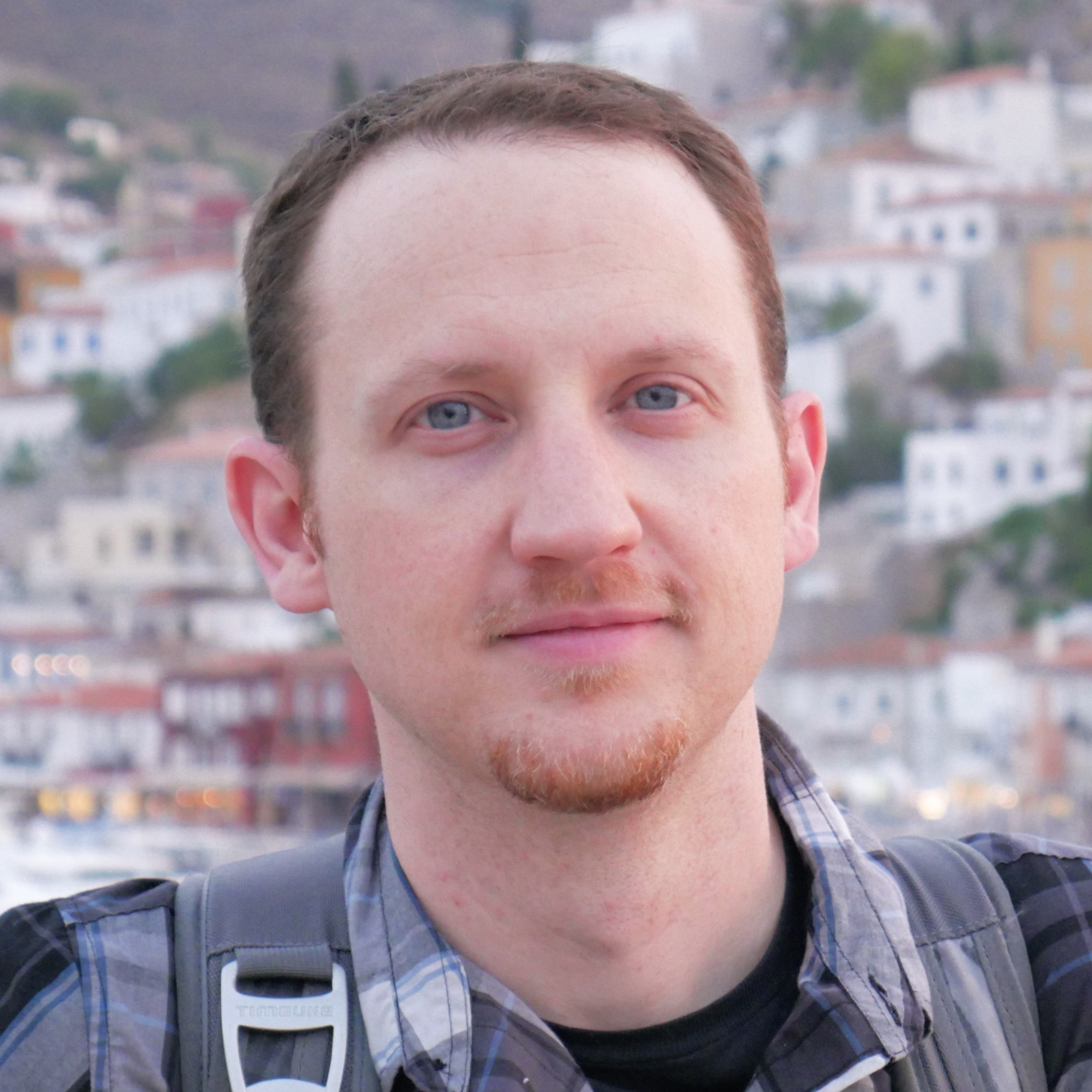
David Wilson
David Wilson is a free software developer and video creator residing in Athens, Greece. He created the System Crafters channel and community to teach others how to craft their computing experience using free software tools like GNU Emacs and GNU Guix. You can learn more about it at https://systemcrafters.net.
Building bridges and plugging in
Building bridges and plugging in
Technology policy, and advocacy around it, used to be largely considered in its own silo. Those days are over. The Electronic Frontier Foundation has been lucky to work with advocates in many spaces, including criminal justice, reproductive justice, and worker rights to advocate for change. As technology becomes an integral part of more areas of our daily life, a cross-disciplinary advocacy mindset becomes more necessary to nurture. We will discuss lessons EFF has learned from building these partnerships. We'll highlight how valuable it is for "tech people" to be more involved in modern community movements. We'll also talk about how we can bring skills honed in the free software advocacy community to other areas of policy. Ultimately, the goal is not only to think about how to diversify the free software movement—it's also to expand people's definition of what "counts" as "their" issue.
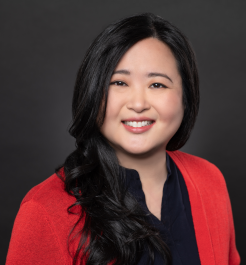
Hayley Tsukayama
Hayley Tsukayama (she/her) is associate director of legislative activism at the Electronic Frontier Foundation (EFF). Her focus is state legislation. She works with EFF's legislative team to craft our positions and public messaging about state bills on EFF issues. She also collaborates with community groups, other policy advocates, and state lawmakers on EFF legislative priorities across the country, including health privacy, surveillance, and right-to-repair. Additionally, she advocates for strong consumer data privacy legislation at the state and national level.
Prior to joining EFF, Hayley spent nearly eight years as a consumer-technology reporter at The Washington Post, writing stories on the industry's largest companies. She is CIPP/US certified by the International Association of Privacy Professionals. She has an MA in journalism from the University of Missouri and a BA in history from Vassar College.
Escape the walled garden: Freeing the Apple GPU
Escape the walled garden: Freeing the Apple GPU
In 2020, we had free graphics drivers for all major hardware. Enter "Apple Silicon", stage left. The new Macs shipped an in-house GPU with proprietary drivers, no public specs, and no native support for free operating systems. Even worse, the vendor's drivers are not conformant to any industry standard, forcing free software developers to waste time porting their graphics code to run inside the walled garden. What do we do? Reverse-engineer the hardware, of course. Once we dissect the architecture, we can build our own graphics stack, protect software freedom, and beat the big guy with our conformant OpenGL® 4.6 support. In this talk, we'll zoom in on this peculiar GPU and what it means for the fight for free software.
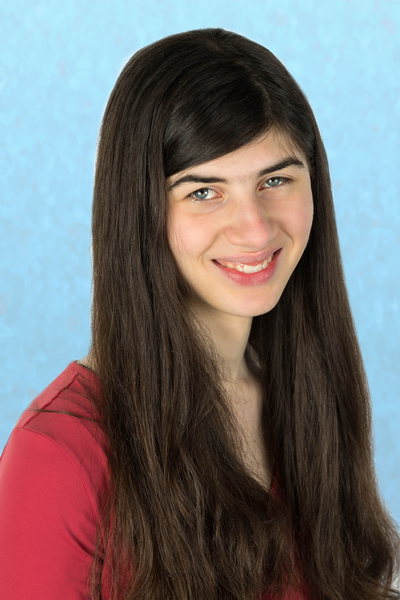
Alyssa Rosenzweig
Alyssa Rosenzweig is the graphics witch behind the reverse-engineered drivers for the Apple GPU. She previously led Panfrost, the free drivers for Arm Mali GPUs powering devices like the Pinebook Pro. She graduated in 2023 with a Computer Science degree from the University of Toronto and now writes free software full-time.
Speakers
Continued: Set up your local currency with free software!
Continued: Set up your local currency with free software!
Taler is a project that develops free software infrastructure for payments. It respects the privacy of buyers while making the income of merchants transparent. Taler does not use the blockchain and it is not a new currency. Instead, it is a building block to deploy bearer-based electronic payments that share some of the properties of traditional cash.
This workshop will cover the design details and talk about the current implementation using GNU Taler: a free software, privacy focused and online payment which is built with some properties of cash.
https://taler.net/en/

Iván Alejandro Ávalos Díaz
I'm a Mexican computer engineer and free-software advocate.
Continued: Connecting community organizations and technological activists for software freedom
Continued: Connecting community organizations and technological activists for software freedom
This workshop aims to create an interactive space for free software supporters as well as representatives of community organizations to collaborate and exchange with each others. The participants will share their experiences with working with community organizations. Together, we will brainstorm solutions to bring more technological freedom and independence, privacy and free software collaborative practices into the community sector. I will present the results of a needs assessment postdoctoral project (Fall 2023) in which I interviewed almost 50 Canadian community organizations, listing their technological challenges and needs. We will thinker solutions related to improving community organizations' data management and privacy, collaborative practices, migration to free software platforms, and continuous training.
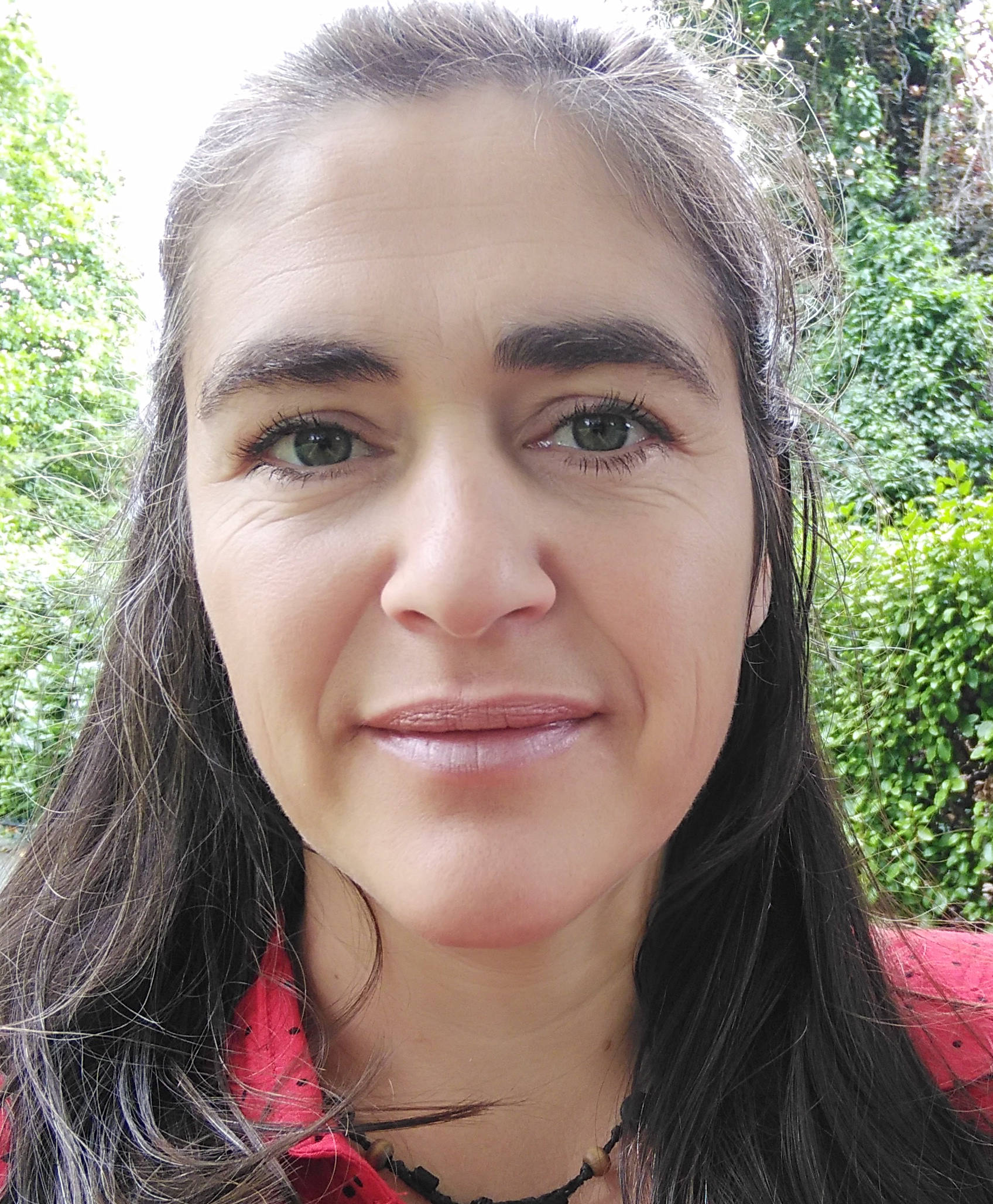
Christina Haralanova
Christina is an academic researcher, hacker, technical trainer, and founder of Code Cuisine Inc. She has been an active free software supporter since early 2000. In her European practice, she has helped over 30 community organizations and more than 200 persons migrate to free software. In her current practice, Christina is exploring ways to help Canadian community organizations create strategic and sustainable technological practices in their daily usage. Xtina's Master's thesis analyzed the contribution of women in the development of free software development (2010). Her Ph.D. thesis discovered how to transform spaces of hacking to become more pedagogical and accessible to everyone (2019).
Making a libre movie only with libre software
Making a libre movie only with libre software
I made a movie called "Moria's Race" ( an action film about racing-obsessed little children ). It took me 3 and a half years for only about 28 minutes of stuff. But I did it using free software only ( avoided the temptation of rendering on the GPU even ). And the film is released under a CC-BY-SA license.
I can talk about how I made it and what I had to do to manage the project.
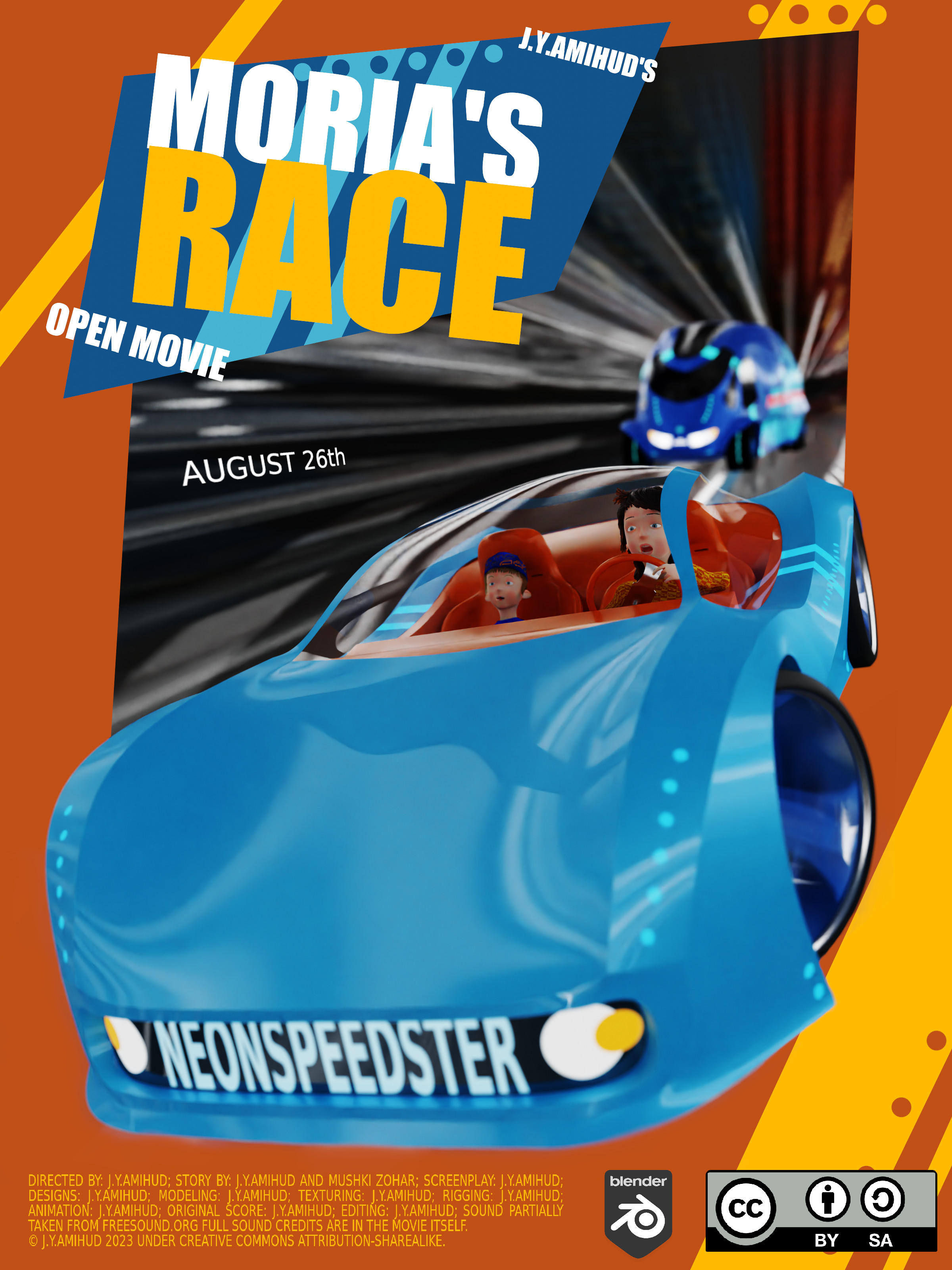
J.Y.Amihud (Blender Dumbass )
Born in Ukraine. Jewish. Living in Israel. Raised in a religious family. Not religious now. A fighter for freedom of all humans. A fighter against power of any human.
Raspberry Pi's liberation progress
Raspberry Pi's liberation progress
This presentation is about Raspberry Pi and the progress on liberating the boot firmware for it. I will talk about why it's important to have free boot firmware on Raspberry Pi and look at its technical details. We will look at the boot firmware librerpi: its status, how it all started and we will also look at its demos.

Johannes Åsgård
I'm Johannes (also known as dolphinana). I'm interested in music and computers. I sometimes compose music and receive positive reactions from it. I like to improvise on piano. As for computers, I like them and I tinker with them sometimes. I have made some attempts to program some games in the past. I'm passionate about free software and I want to contribute to its movement. I try to free the boot firmware on devices when ever possible.
Set up your local currency with free software!
Set up your local currency with free software!
Taler is a project that develops free software infrastructure for payments. It respects the privacy of buyers while making the income of merchants transparent. Taler does not use the blockchain and it is not a new currency. Instead, it is a building block to deploy bearer-based electronic payments that share some of the properties of traditional cash.
This workshop will cover the design details and talk about the current implementation using GNU Taler: a free software, privacy focused and online payment which is built with some properties of cash.
https://taler.net/en/

Iván Alejandro Ávalos Díaz
I'm a Mexican computer engineer and free-software advocate.
GNU@NU: Building a community in education
GNU@NU: Building a community in education
Nowadays, proprietary/non-free software has become nearly synonymous with educational establishments. Using software that is "the norm" or "industry standard" forces students to submit to proprietary applications "for the good of their future." Tools for textbook access and homework assignment/submission force students to submit to subscription-based DRM models and forfeit any opportunity to own the knowledge contained within the textbooks. Big name companies, some of which are the biggest proponents of proprietary software, are considered the best on resumes, and students are encouraged to search for jobs at such conglomerates. GNU@NU, Northeastern's free software organization is here to help! We will be holding a discussion on student experiences with free software, as they pertain to anything remotely educational. Come join us to help and learn more!
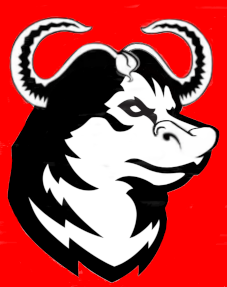
Michael Brodskiy
The Libre Software Advocacy Group at Northeastern University, shortened GNU@NU, is an organization centered around introducing students to the free software philosophy. This is done through workshops, discussions, presentations, guest speakers, and visits to the FSF.
This panel is a cooperation between GNU@NU and Olivia Gallucci, a guest speaker from the Rochester Institute of Technology. Olivia is an offensive security engineer, freelance penetration tester, and security researcher. She is an undergraduate student and ranks in the the top 1% of her class at the Rochester Institute of Technology; Olivia is double-majoring in Cybersecurity and Computer Science, and minoring in Business Administration, Free Software, and Freedom Culture. Additionally, Olivia maintains a blog on security, free software, and productivity. Outside of cybersecurity, Olivia enjoys competitive sailing, anything related to fitness and food, and reading nonfiction.
Hosting freedom: A behind-the-scenes tour with the Savannah Hackers
Hosting freedom: A behind-the-scenes tour with the Savannah Hackers
Wait. GNU/FSF hosts a forge? What's a forge? Who are these hackers? Will there be a quiz later? In this 30 minute talk we'll answer these questions and raises others as we introduce an often overlooked free software development resource and the "smiling faces" behind it.
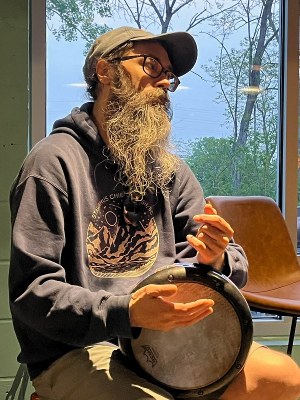
Corwin Brust
Corwin Brust joined the Savannah Hackers in 2020. He completed his apprenticeship in 2023. He is also a core organizer for EmacsConf and a volunteer for GNU Emacs. His rarely updated blog, where he writes mostly about Emacs, is corwin.bru.st. You can reach him by sending email to corwin@bru.st or in #savannah on https://libera.chat IRC.
Hacking art into a community
Hacking art into a community
My love for freedom brought me to free software. Free software came with free licenses, like the GPL, that was used for the RepRap project. I have assimilated a lot from that project, and modifying a 3D printer I realized a coreXY meditation table.
Marco Calegaro
Free software hacker.
100% believer in the "Free Software, Free Society" motto.
AccessKit: A shared accessibility glue layer for the whole community
AccessKit: A shared accessibility glue layer for the whole community
In non-web applications, accessibility has long been confined to only a handful of the largest, most well-resourced UI toolkits, leaving a large proportion of free software inaccessible to disabled people. AccessKit aims to solve this problem by providing an accessibility abstraction and glue layer that can be reused by many toolkits across programming languages. Our aim is to do for accessibility what libraries such as SDL have done for graphics, input, and windowing. This talk will cover what we've accomplished so far, what's next, and how the community can help.

Matt Campbell
Matt is a visually impaired developer who has been working in accessibility for over 20 years. He spent most of that time so far working on proprietary software, but he is now the lead developer of AccessKit, a free accessibility glue layer for multiple platforms and programming languages.
Debian community in Brazil
Debian community in Brazil
Let's see what the Debian Brazil Community has been doing for Debian and free software in Brazil, meet our group and I will show the events and activities organized by us.
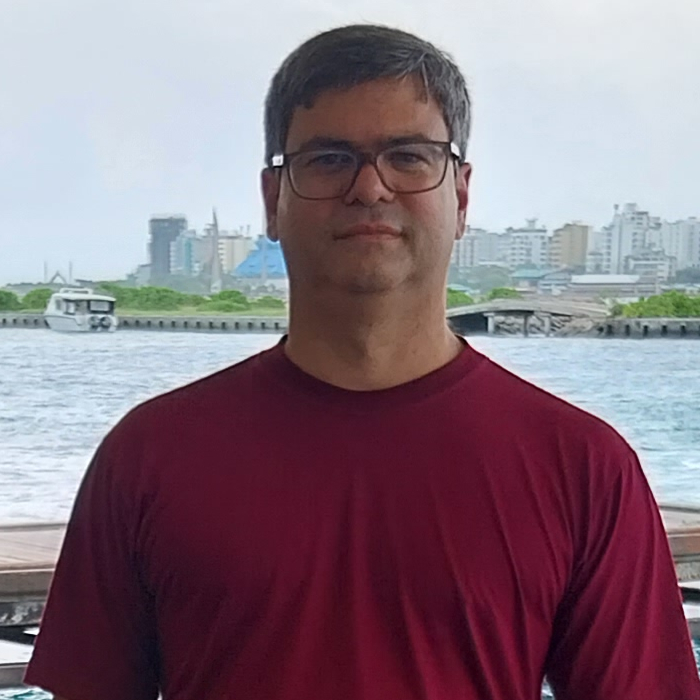
Paulo Henrique de Lima Santana
I'm a Debian developer contributing with packaging free software, and translating Debian to Portuguese. I'm a free software enthusiast and I have been organizing free software events for many years. I was one of main organizers of DebConf19 - The Debian Conference in 2019 in Curitiba - Brazil. I have been working as systems administration engineer at Collabora. I’m a member of the Debian Brazil Community.
Exploring free software entrepreneurship: Navigating the opportunities and obstacles
Exploring free software entrepreneurship: Navigating the opportunities and obstacles
Free software entrepreneurship offers a wealth of opportunities, from reduced barriers to entry to community collaboration and market expansion; however, it comes with its set of obstacles, including monetization challenges, licensing complexities, competition, community management, and ongoing maintenance. How to establish a successful free software business by empowering customers with freedom, self-sustenance, and complete control, and at the same time explore business opportunities.
Shivanand Edrami
I bring to the table 25 years of experience in various domains, such as sales, marketing, business development, and management. My primary focus is on assisting and providing consultancy services to clients in selecting the most suitable free software solutions, allowing them to self-host their IT infrastructure, thereby granting them complete autonomy and control over their IT systems.
Digital freedom as a moral imperative for authors
Digital freedom as a moral imperative for authors
Today, the market embraces "open source" as a pragmatic working model, but does not have libre software as an ethical imperative.
The companies that produce the most libre works are companies with proprietary business models, while many useful libre projects struggle to find funding, up to the point of ending up with no maintenance, bought by proprietary producers or transitioning to proprietary licensing models.
If the long-term maintenance of libre projects is only sustainable for those who produce proprietary works, how will we be ever able to overcome the proprietary model?
On this panel, we will discuss strategies to overcome the proprietary model for good, and make libre works an achievable moral imperative for most authors.
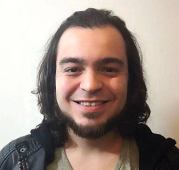
Felix Freeman
Felix Freeman is a web developer, GNU/Linux sysadmin, software engineer, and activist who specializes in libre software. Co-founder of Hackerspace Santiago (hackerspace.cl) and the "Escuela de Técnica y Cultura Hacker" (hacktivista.org). Felix has been active in the libre software community for more than fifteen years.
FSF staff panel on software freedom advocacy
FSF staff panel on software freedom advocacy
Join FSF staff for an informal panel on both organizational and interpersonal advocacy for software freedom. We'll share where we think we (as a community) do well and areas where we need to improve. We hope you'll share your experiences, too!
FSF staff Miriam Bastian, Greg Farough, and Zoë Kooyman will be speaking. Maybe more!

by FSF
Resurrecting Software Freedom Day
Resurrecting Software Freedom Day
Software Freedom Day has been a rather niche event, but inside the FOSS community it was a household brand a decade ago. While it has been on the decline over the last 10 years, today the event is more important than ever in the movement to further Software Freedom. In this talk, I will explain why.
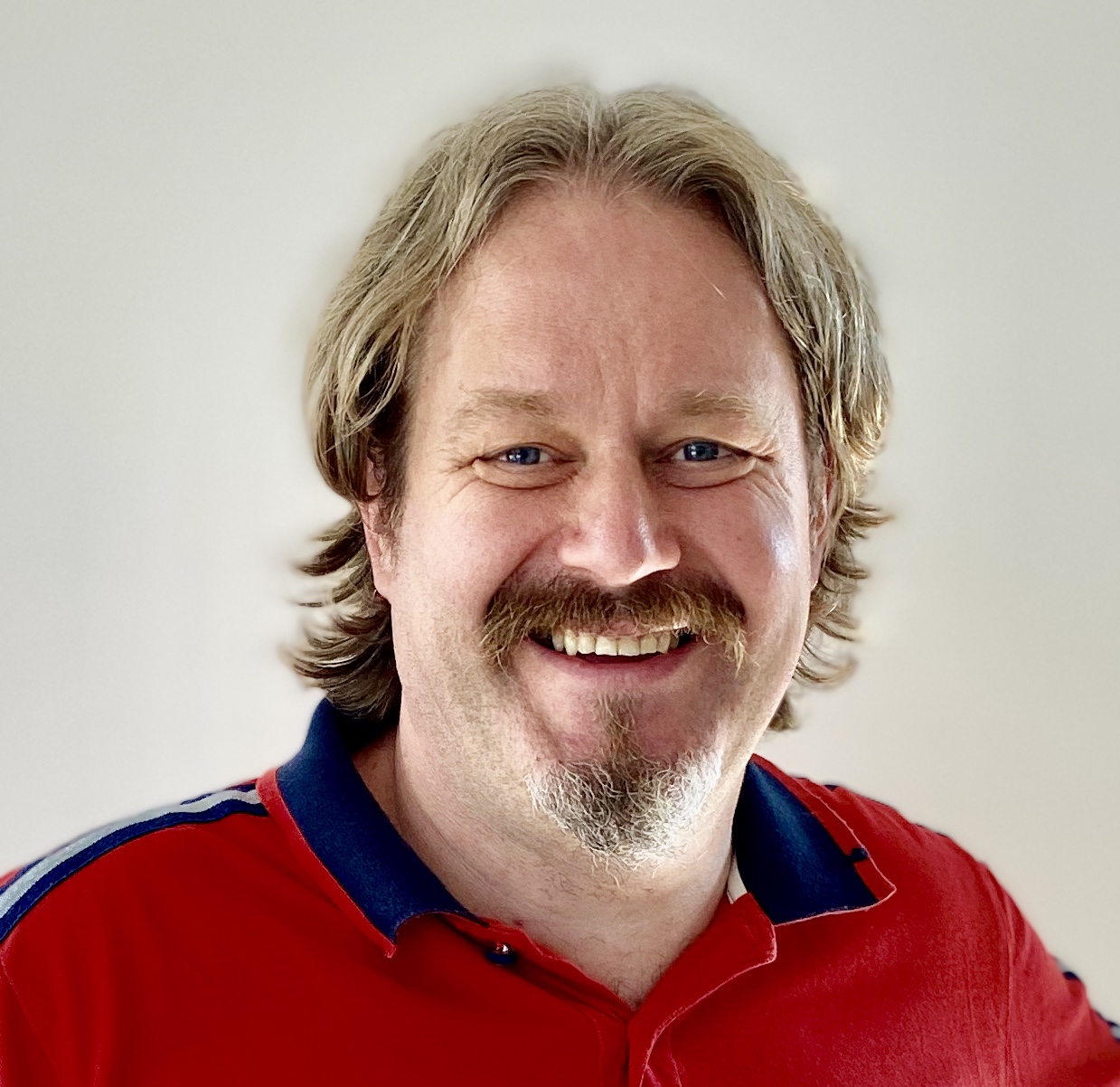
Jurgen Gaeremyn
Father of two, happily married, bit of a nerd, but not a die hard technical profile. A bit of a philosopher but not a trained scholar. Long time user and advocate of entry level free software tools. Part of the Digital Freedom Foundation Board
Pollyanna: Build your own libre social network
Pollyanna: Build your own libre social network
Pollyanna is a web framework that makes it easy to create your own libre social space, such as a social network or blog. With Pollyanna, you can achieve full transparency, including software, content, and voting record. You can also deploy your own community space in less than an hour.
In this workshop, we will learn about the Pollyanna framework and how to use it to create our own libre social spaces. We will also discuss public-private key infrastructure (PKI), hashes, and chains, and how those can be used to build a data structure that allows for a completely portable user profile.
This workshop is for anyone who is interested in learning more about Pollyanna and how to use it to create their own libre social space. No prior experience with Pollyanna or web development is required.
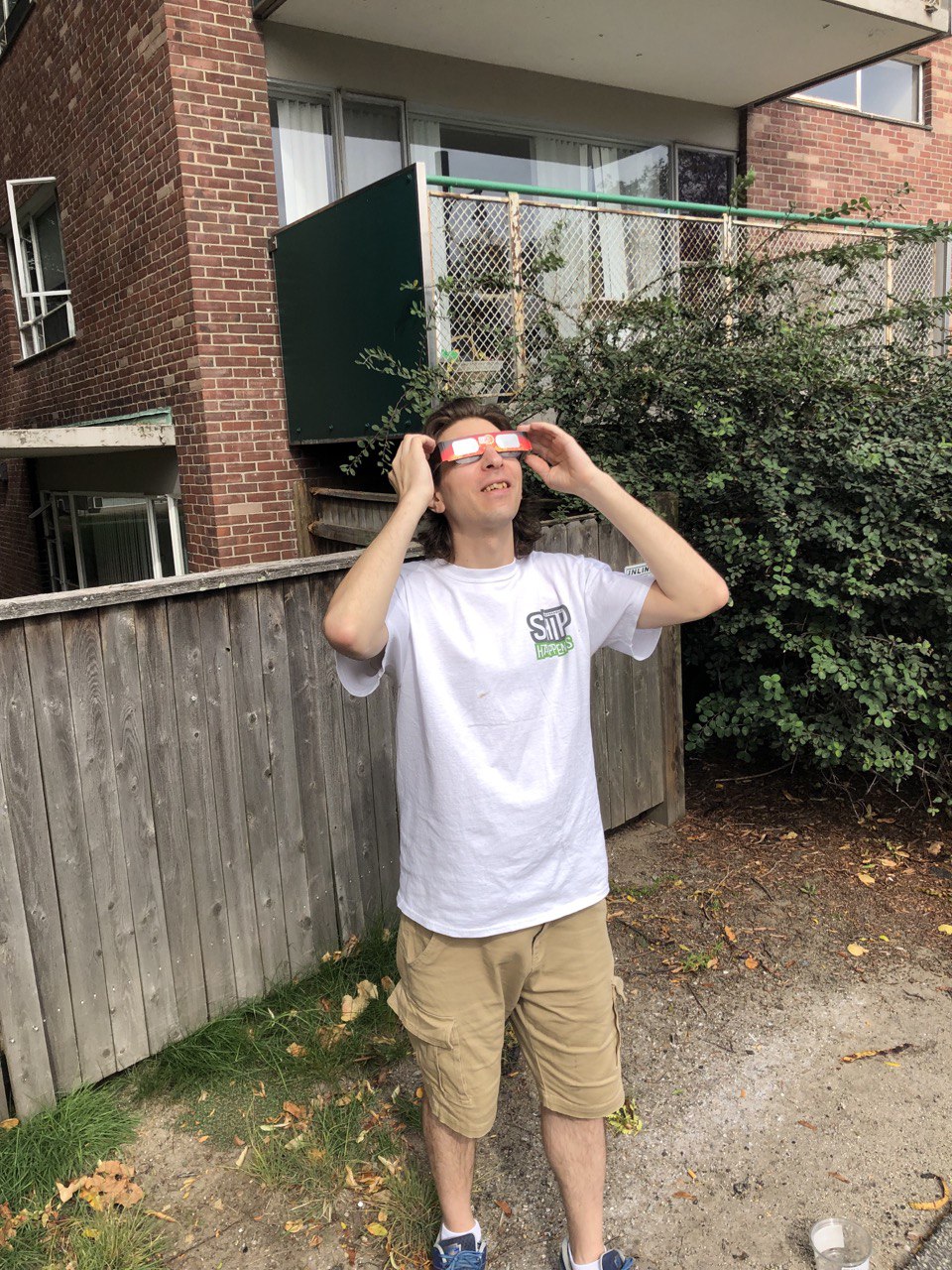
Ilya Gulko
I am a passionate advocate for accessibility, compatibility, and consent in software. I have been working on Pollyanna, a libre web framework for building social spaces, for six years. I am excited to share Pollyanna with the LibrePlanet community and teach others how to use it to create their own libre social spaces.
In my workshop, I will introduce participants to the Pollyanna framework and teach them how to use it to create their own social spaces, such as social networks, forums, or blogs. I will also discuss the benefits of using Pollyanna, such as transparency, decentralization, and user-controlled moderation.
Connecting community organizations and technological activists for software freedom
Connecting community organizations and technological activists for software freedom
This workshop aims to create an interactive space for free software supporters as well as representatives of community organizations to collaborate and exchange with each others. The participants will share their experiences with working with community organizations. Together, we will brainstorm solutions to bring more technological freedom and independence, privacy and free software collaborative practices into the community sector. I will present the results of a needs assessment postdoctoral project (Fall 2023) in which I interviewed almost 50 Canadian community organizations, listing their technological challenges and needs. We will thinker solutions related to improving community organizations' data management and privacy, collaborative practices, migration to free software platforms, and continuous training.
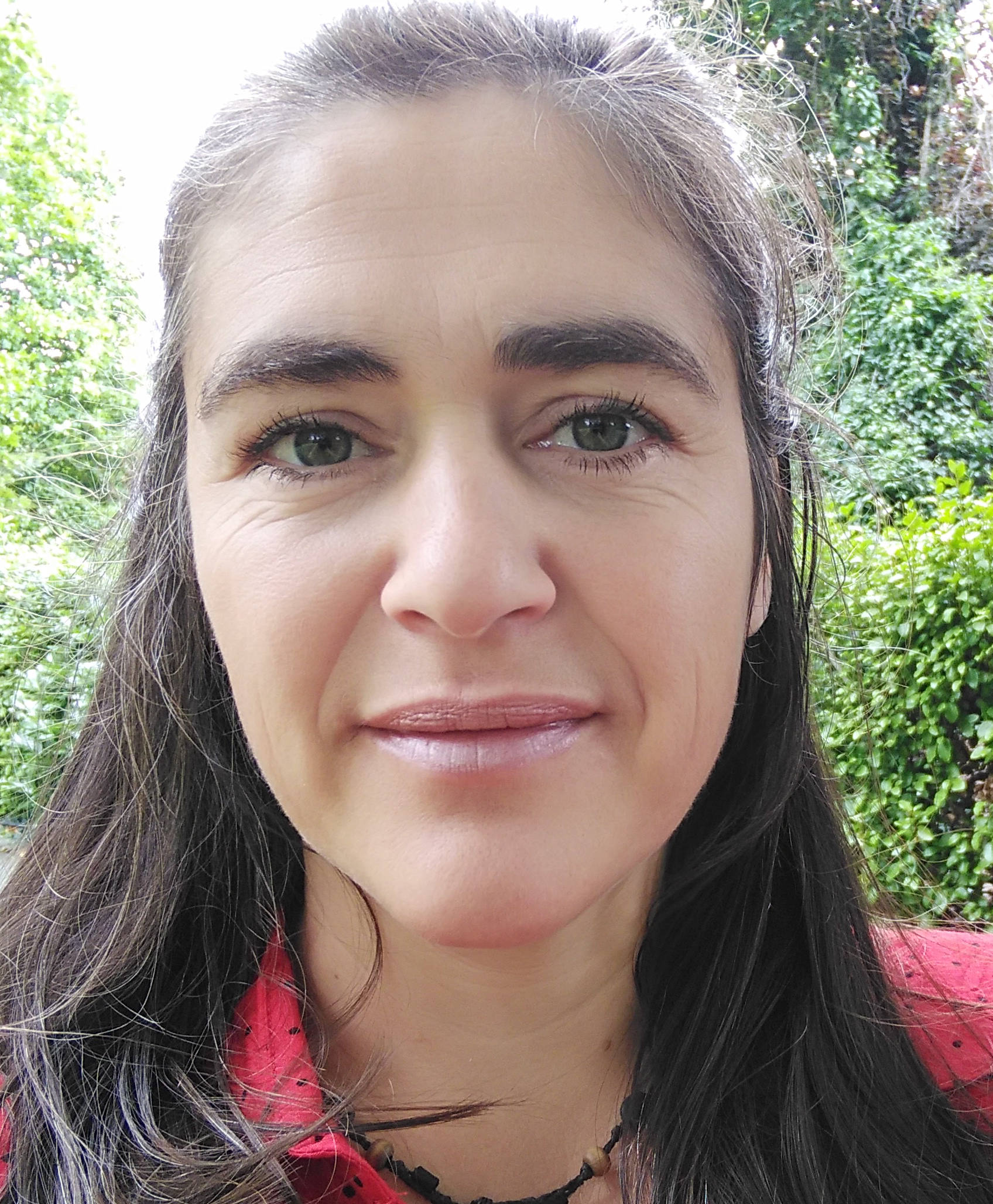
Christina Haralanova
Christina is an academic researcher, free software activist, technical trainer, and university lecturer. Born in Bulgaria and living in Montreal, Quebec, Christina has been an active free software supporter since 2000. Her vital work in Bulgaria and Eastern Europe has been to promote social and internet rights, helping over 30 rights-defending organizations to migrate to free software and become more independent in their choice of technology. Christina has been a founding member of the Free Software Association Bulgaria and a Women's Information Technology Network coordinator promoting free software to feminist organizations around Europe.
Her Master's Thesis (2010) studies the invisible contributions of women in free software development (2010). Her Ph.D. research discussed how to transform hacking spaces to become more accessible, diverse and pedagogically engaging to everyone (2019).
In her current practice, Christina works at the intersection of technology, feminism, and social justice. Her consulting work explores ways to help Canadian community organizations create strategic and sustainable technological practices in their daily usage based on free
software choices.
"Artificial intelligence": What threat are we talking about?
"Artificial intelligence": What threat are we talking about?
Various distinguished and international newspapers are announcing that AI will have a disruptive impact on employment, various governments seem to be partly aware of the impact for better or worse of this technology on society. The Center for AI Safety which aims to "ensure the safe development and use of AI" publishes "Mitigating the risk of extinction caused by AI should be a global priority, along with other societal-scale risks such as pandemics and nuclear war." We will connect the dots between investments in AI and previous investments made by Silicon Valley and try to decipher the trends and risks. Above all, we will reflect on how this relates to those of us who are passionate about sharing, the commons, and free software.
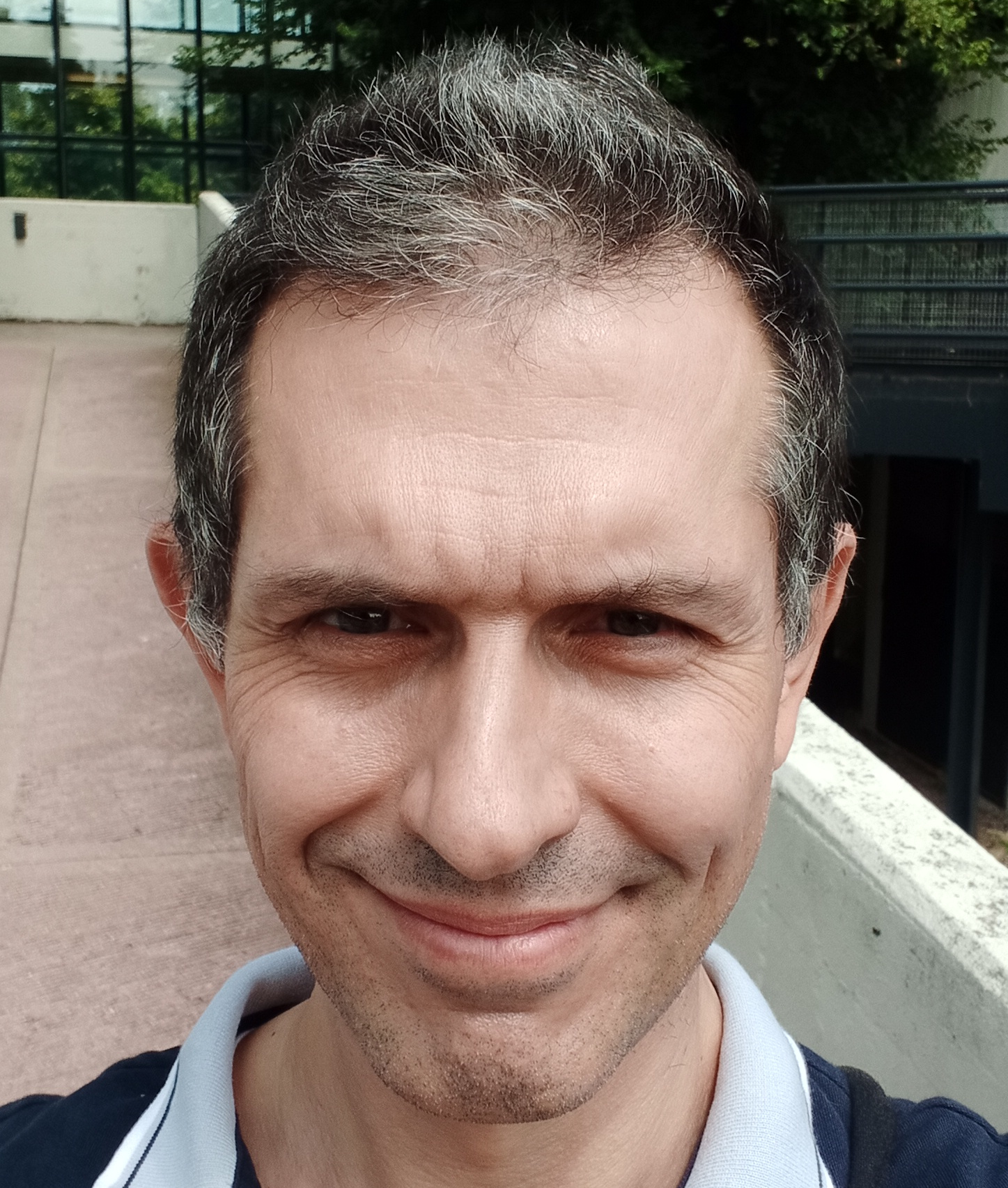
Roberto Innocenti
Among the founders of the project Open Hardware PowerPC Notebook, presenter and ambassador of the project. President of the association Power Progress Community which deals with the promotion and dissemination of free software and libre hardware. Responsible in humanist forums of the area "Technology for improving the living conditions of mankind". By profession, Software architect with free software tools.
AI in a closing world
AI in a closing world
We live in a world where AI is entering the decision-making in business and politics. Organizations that control the AI or control the training data have control over the decisions. We cannot leave the decision-making up to centralized AI companies. Otherwise, we will soon live in a world where a single company can direct the future of thousands of organizations and government agencies. The only way for society to fight back is through free software. Join me in exploring the world of AI and why it is necessary for society and investors wanting to make money to convince companies to use Free AI.

Kevin Korte
Kevin is an Executive, Board Member, and IT & Growth Strategist with a proven track record of harnessing commercial acumen with finance expertise to drive companies to a brighter and free future. With a strong history in cybersecurity, AI, and free software, Kevin is seen as an industry leader and has shown the value of maintaining control of your data and digital identity. An active startup investor and mentor, Kevin lives outside of Seattle with his family and the resident bear.
Steadfast self-hosting
Steadfast self-hosting
Your data are essential to your life, your agency, and your future. Come learn how to save, serve, and safely share your data at home with a smorgasbord of free software. I'll cover rapid setup and basic use of tools such as Traefik, Nextcloud, Wallabag, Jellyfin, and more. With these powerful and private services at your disposal, you can collaboratively edit documents in realtime online, stream music and video, and future-proof your digital assets.
This talk pairs well with a soon-to-be released book of the same topic and title. Both the book and talk are about self-hosting free software, were created with free software, and are free software themselves.
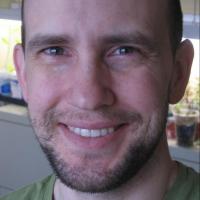
Adam Monsen
Adam is a father, tech entrepreneur, and free software enthusiast. He loves to parent, care, laugh, sing, listen, code, build, produce, debug, architect, debug, lead, manage, debug some more, lecture, and write. He's good at administering and securing systems and processes while ensuring privacy, compliance, and reliability. Adam is most proud of his family, growing Mifos, founding SeaGL, selling C-SATS, and writing his book.
Free software legislation: How we win
Free software legislation: How we win
In many contexts, including cybersecurity and AI, governments around the world are working on legislation to regulate the distribution of software. The presentation will look at how we've addressed external problems in the past. The ones we won, the ones we lost. It will look at a year of work on the EU Cyber Resilience Act. First, a short look at its substance, because the US and other regions are already working on something similar. Second, a longer look at the campaign itself: coalition building, why policy can't be worked on like software, and how to find and keep allies.

Ciarán O'Riordan
Senior policy advisor at OFE, Ciarán O’Riordan has been working in Brussels since 2004 with a focus on EU policy and free software. His work in the sector includes copyright and patent policy in the EU, patent policy in the US, and community engagement for the drafting of version 3 of the GNU General Public License. He also brings policy experience from the automotive sector, GDPR, and corporate finance. He studied law at UCLouvain Saint-Louis Bruxelles. A user of GNU/Linux since 1998, Ciarán worked as a software developer in Dublin before his move to Brussels.
Software enshittification or freedom? It's not a hard choice!
Software enshittification or freedom? It's not a hard choice!
Nonfree software subjugates users. That's wrong enough, but such power is now used to wrong users even harder. The easier it is for third parties to impose on a user their choice of software version the more they can twiddle the software's behavior to best serve themselves and enshittify the user's computing. This holds for dominant (nonfree) operating systems for workstations and mobiles, with their mandatory updates, but users become even more vulnerable to enshittification by using web apps downloaded at every use from somebody else's servers, by doing their computing through somebody else's services, and by using remotely controlled and remotely mediated smartIoT devices and appliances. Even when using software that's not updated automatically on their own computers, users (and their upstream distributors) may be persuaded to adopt enshittif(ied/ying?) versions, including CPU microcode and firmware for system initialization and for peripheral devices. Is using free software enough to escape?
Alexandre Oliva
Free software evangelist. GNU speaker and advisory-committee member. Recipient of the FSF's 2016 Award for the Advancement of Free Software. FSF Latin America board member. FSF supporter, voting member, and former acting president. LibrePlanet São Paulo activist. 0G foreseer. Maintainer of GNU Linux-libre, and co-maintainer of the GNU Compiler Collection, GNU binutils, and GNU libc. Libre-SOC contributor. GNU tools engineer at AdaCore.
Writing free culture fantasy with free software
Writing free culture fantasy with free software
The collaborative spirit of the free software and hacker movements lends itself to writing fiction as well. I write free culture fantasy stories with free software tools. Crafting characters and settings that can be used freely by other authors and artists promotes creativity and is a useful way of teaching people about the principles of freedom.
Since I use plain text and a Git-based workflow, anyone can freely read, modify, and share my stories. They can learn from edits I have made or propose improvements. Plain text formats like Markdown and Shanty make writings portable across most computers.
We can create a storytelling community that allows cross-pollination between creators and disciplines (e.g., novels, songs, and video games) and changes us from consumers to creators.

Seth Patterson
Seth Patterson grew up listening to radio dramas and his mom reading novels from the 1800s. He got his love of writing from his dad, who is an editor. In high school, he completed One Year Adventure Novel. He has been in love with writing fiction ever since.
He studied cybersecurity in college, which taught him how to think like bad guys to defend against them. Thinking like bad guys comes in handy for writing fiction too. He also discovered free software and free culture in college.
Seth writes free culture fiction, using tools like Nano and Markdown.
Gaming on a Talos II: How I avoid using Steam
Gaming on a Talos II: How I avoid using Steam
It is well known that Valve distributes non-free DRMed games via their Steam Platform, including many VR games. As a gamer who cares about freedom, I avoid those games. Since my computer is based on the FSF certified Talos II Mainboard and POWER9 CPU, I'm technically unable to install those non-free games and the Steam Client Software. Instead I go for Freedom-To-Play games, included in many GNU/Linux distributions. (in some cases even SteamOS without having to use Steam). I'll also improve existing "open source" games and make them truly freedom respecting. This does not mean that those games have to be gratis, I think of a way to enable users to pay for Freedom-To-Play games using Taler.

Tobias Platen
I'm a free software developer, HDL engineer and passionate VR gamer. I have been using free software for many years, the first time I used GNU software (not knowing about GNUs freedom) was GNUchess for 16 Bit Windows in 1994.
GNU/Linux in the high school classroom
GNU/Linux in the high school classroom
Learn how I use GNU/Linux in my classroom. See how students use the Command Line Interface (CLI) to perform network exploration tasks. Lessons on Bash and Python coding will also be discussed. There will also be examination of emerging trends in high school computer science.

Neil Plotnick
Nationally recognized, American high school teacher with over two decades of classroom experience. Previously worked for fifteen years in information technology for Ziff-Davis, including PC Week, where he wrote a networking advice column. His book "The IT Professionals Guide" was published by McGraw Hill.
Walled gardens of freedom
Walled gardens of freedom
The primary computer for over half of humanity is the smartphone. Nearly all of these devices run some proprietary locked-down derivations of free operating systems that restrict, in various ways, the software that can be run. The resulting "walled garden" app stores that dominate these platforms are naturally biased against free software in favor of profit-making app ventures. Does this mean that free software is impossible to create – and sustain – in this environment? The premise of this talk is that the answer must be no. But it is an uphill battle. I will outline a model of an oasis of free software that can grow and thrive within these walled-garden environments, and how a small global community can sustain a collection of digital public goods that may benefit billions of people, with minimal ongoing cost, for generations to come.
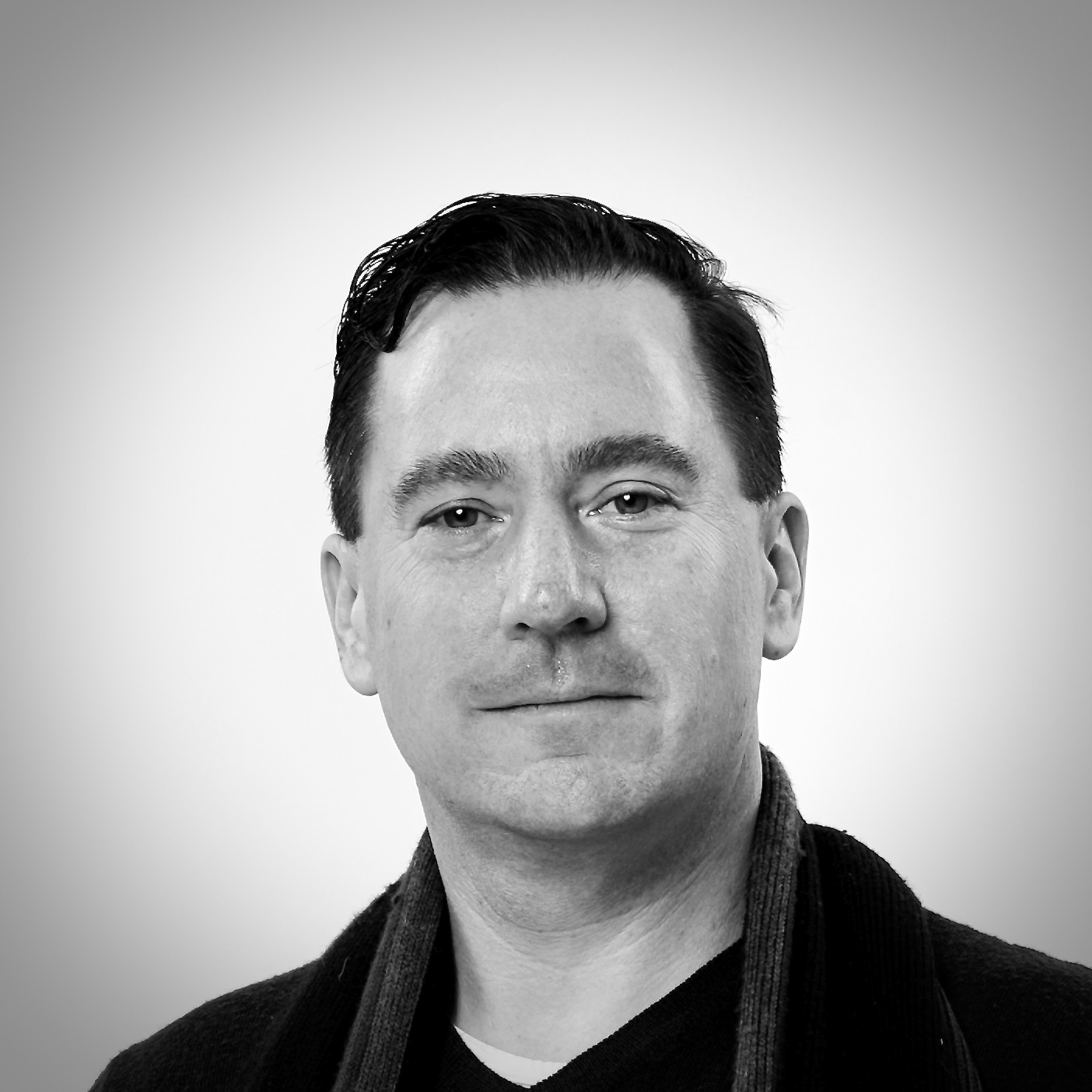
Marc Prud'hommeaux
I've been programming computers since 1983, starting with a TRS-80. I've developed both enterprise and consumer software on a wide range of platforms since 1998. I've worked on some popular apps, such as the Stanza ebook reader for the iPhone, and subsequent contribution to the Kindle app. I recently founded the App Fair Project to promote free software for mobile devices as digital public goods.
Trisquel twentieth anniversary spectacular
Trisquel twentieth anniversary spectacular
The Trisquel GNU/Linux project is celebrating its twentieth anniversary. With a new major release planned for later this year, a developer preview would be available by the time we get together to celebrate at LibrePlanet 2024. Trisquel is a fully free operating system recommended by the FSF and the GNU project, and it focuses on privacy, accessibility and usability.
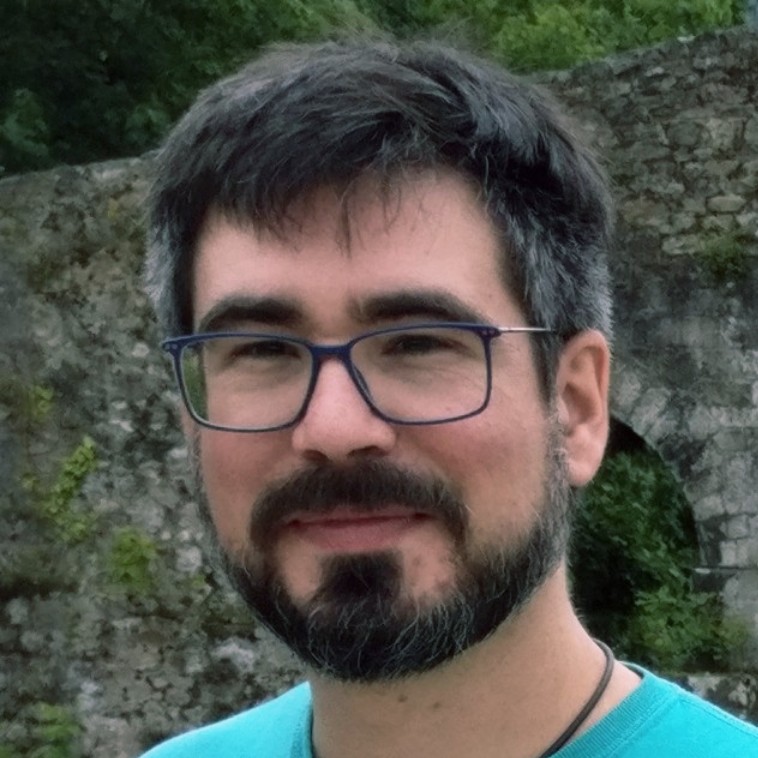
Rubén Rodríguez Pérez
Software engineer, photographer, GNU hacker, guitar player, ape descendant. Ruben started his career developing free software for research centers and universities, then founded the Trisquel GNU/Linux distribution project and other nonprofits. He is Free Software Foundation emeritus and currently works at the Internet Archive, he likes dogs and paragliding, and dislikes writing about himself.
Free software praxis: Removing limitations
Free software praxis: Removing limitations
Using OpenProject as an example, this talk explores how to delve into a completely alien codebase written in a language that you've never used to make changes that you want. This is a practical use of software freedom.
We will walk through all the steps from "I just installed this software" all the way through becoming familiar with the codebase and developing an understanding of the language. On the way we will discuss when it makes sense to take shortcuts and when it makes sense to actually do the hard work. We'll end with a live demo.
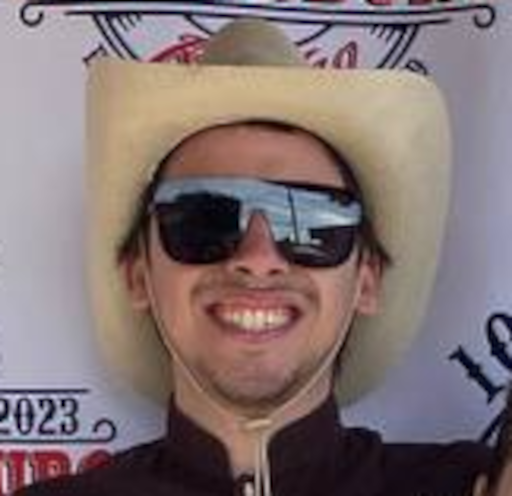
Romeo S
Coming all the way from the other end of I-90, I am a GNU/Linux sysadmin with nearly a decade of experience. As a college dropout, I have taught myself the ins and outs of GNU/Linux and of numerous software projects. A consistent habit of "being the edge case that you want to see in the world" has forced me to develop a knack for solving problems that developers and maintainers typically don't see coming. Primarily specializing in HPC-related infrastructure management, I live in a world of "except for on this cluster" and "except for in this context." This environment of asterisks has forced adaptability, which has translated into a lot of experience in diving into the weeds.
It is easy to contribute to GNU
It is easy to contribute to GNU
This presentation starts with a brief introduction of how I became a Savannah user in 2014 and began my road to contribute to GNU website translations in 2017. The whole experience is an interesting journey. I think many people can do this because GNU has forty years of history already. All the tools are good enough for you to contribute.

Wensheng XIE
I am an associate member of the FSF and have been coordinating the GNU website's Simplified Chinese Translation project since 2017.
Why not just become luddites?: The politics of technology
Why not just become luddites?: The politics of technology
It can almost seem nowadays as if every "advancement" with technology is just a sign of another freedom to be encroached upon. Progress and freedom are constantly put at odds, and we're told that the forces of "progress" are destined to win. Pessimism looms both within and outside of our community: politicians and pundits are content to blame computers for the breakdown of society, but present no solution. And it's in moments like these, some of us may come to the conclusion that this is just inherent to technology itself.
In this talk, I plan to — through the theories of various thinkers such as Marx and Ellul — challenge that attitude and show how it is social forces which shape technological evolution rather than the other way around, that the actions of our community have the power to shape the evolution of technology and rebuild community in the world at large.
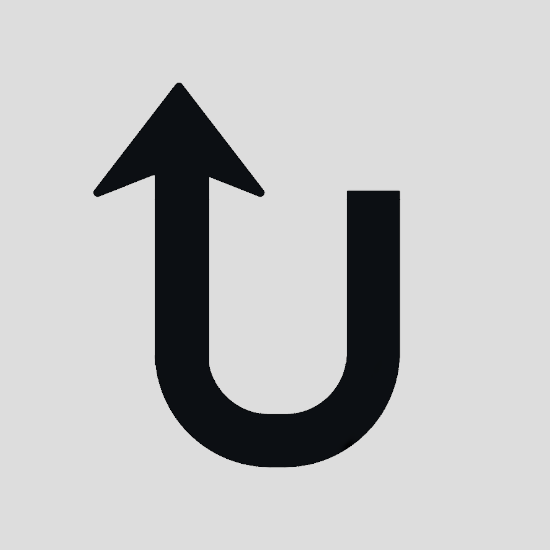
Tomat0 ⠀
I am a current software engineer and former FSF intern, who is currently working with the Social Coding Movement. I help run Software Guilds, an initiative to help onboard more people into becoming free-software contributors. For me, technology is a larger social question: the lessons we take from disciplines such as sociology, history, economics, and so on all bear great importance for understanding how we organize and what we are fighting against. My goal is to plant both the theoretical and organizational seeds for our movement to leave its mark on and situate itself in our world.
![[ LibrePlanet 2024 ]](/2024/assets/img/logo.svg)